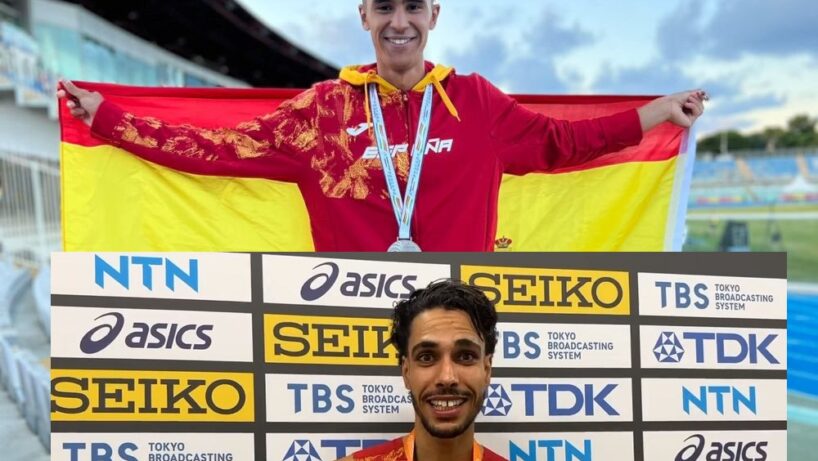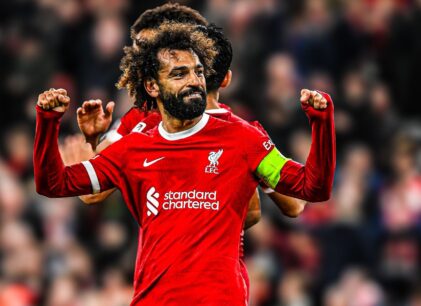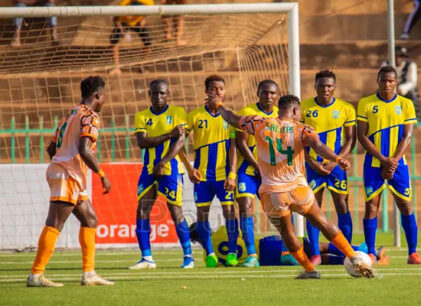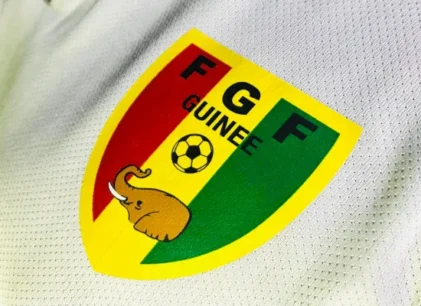.Soufiane El Bakkali’s new world championship title has delighted the Moroccan people. A title that has been the subject of much comment in the Cherifian Kingdom, but which also conceals a great void in a sport that once brought in more silver medals and created a multitude of champions.
Athletics: Mohamed Attaoui and Mohamed Katir represent Spain
Those who have been following athletics for decades are savoring Soufiane El Bakkali’s new title at the world championships. The athlete established himself as the new king of the 3,000 m steeplechase, ahead of the Kenyans and Ethiopians. This global success comes on the heels of Fatima Zahra El Gardadi’s bronze medal in the marathon. The young athlete was the real surprise of these World Championships, winning a medal that the public was not expecting.
A far cry from Seville 1999
However, on closer examination, these two performances are far from reflecting the place that Moroccan athletics deserves on the world stage. In the past, Morocco has managed to finish in the top 5 at World Championships. In fact, its best ever appearance was in Seville in 1999. Back then, the Kingdom’s athletes won five medals: two gold (Hicham El Guerrouj in the 1,500 m and Salah Hissou in the 5,000 m), two silver (Nezha Bidouane in the 400 m hurdles and Zahra Ouaaziz in the 5,000 m) and one bronze (Ali Ezzine in the 3,000 m steeplechase). Thanks to this unprecedented record, Morocco finished 5th in the medal table at the 1999 event. A far cry from their performance at the last World Championships.
Worse still, there were no medals at all in disciplines that were once well represented.Not a single athlete lined up in the 5,000 m and 10,000 m, and no Moroccan woman competed in the 3,000 m steeplechase, 1,500 m and 5,000 m events. Morocco was ranked 10th in Budapest and 4th in Africa. Today’s rivals Kenya and Ethiopia, on the other hand, took home 10 and 9 medals respectively. An abysmal gap!
A federation lacking benchmarks
For some observers, Moroccan athletes could do a lot more with better management at federal level. Certainly, the infrastructure is available, but track legends should be approached or integrated to bring all their know-how to the young talents. First and foremost, Hicham El Guerrouj. Despite his many achievements, the former star of world athletics is not part of the federal body.
A drain on Spain
Another phenomenon is also likely to complicate the quest for medals in the coming years. Some athletes born or originally from the Kingdom have gone on to represent Spain, where they have benefited from a real career plan. Some observers point the finger at the inadequate supervision of young sprouts compared with other countries.
In Budapest, 21-year-old Mohamed Attaoui, from the Béni Mellal region, reached the semi-finals of the 800 m in Spanish colors. A few years ago, Ilyas Fifa made the headlines after shining for Spain. The athlete had left his native Morocco hidden in the back of a truck. Abdelaziz Merzougui, for his part, took a patera (makeshift boat) to reach Spain, which he represents in competitions.There are several other cases of Moroccan athletes defending Spanish colors. The best example is Mohamed Katir, silver medallist in the 5,000 m at Budapest wearing the Iberian flag.
“Many athletes are being held back by neglect”.
Contacted by us, an observer of the discipline denounced a “catastrophic” situation in national athletics. He believes that the discipline “does not allow many athletes to gain the recognition they deserve and earn a decent living, hence the choice to answer the call of other sirens”.
“The succession of modest results, the exclusion and marginalization of certain athletes, the hemorrhage of naturalizations are killing national athletics. It’s a shame we’re no longer producing champions in the 800 m, 1,500 m, 5,000 m and 10,000 m,” laments another.
“These are serious problems that need to be resolved by the FRMA and its technical management. Yes, we must fight against doping and select the best, but we must also dare to say that many athletes are stopped in their tracks by negligence and poor management”, he insists.
Morocco has won a total of 33 medals, including 12 gold, 12 silver and 9 bronze, since its first participation in 1983 in Helsinki.However, the Kingdom has missed the podium on four occasions, in Stuttgart (1993), Berlin (2009), Daegu (2011) and Moscow (2013). Morocco’s best-ever appearances at the World Championships
Seville 1999: 5 medals (2-2-1)Athens 1997: 4 medals (2-1-1)
Edmonton (2-1-0)
Paris 2003 (2-1-0)
Helsinki 2005 (1-1-1)





